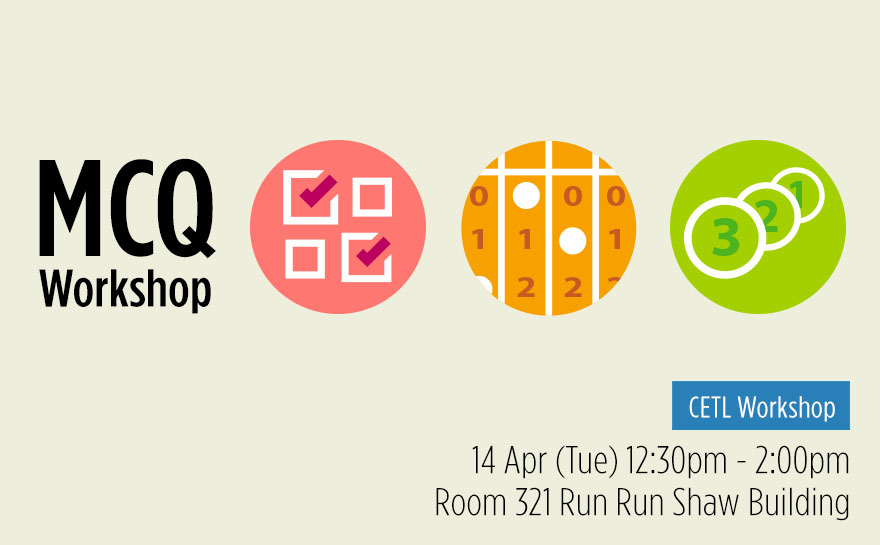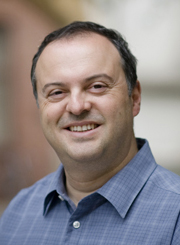
Organized by
Centre for the Enhancement of Teaching and Learning (CETL)
Speaker: Mr Neville Chiavaroli, Senior Lecturer in Clinical Education, Faculty of Medicine, Dentistry and Health Sciences, the University of Melbourne, Australia
Chair: Dr Susan Bridges, Associate Professor, Centre for the Enhancement of Teaching and Learning/ Faculty of Education, HKU
Date : 14th April, 2015 (Tuesday)
Time : 12:30pm – 2:00pm
Venue : Room 321, Run Run Shaw Building
Abstract:
MCQ examinations are often seen as a concession to modern-day realities of universities -– a way of assessing large numbers of students, reliably, and without the hassle of hands-on marking. If the result is the reduction of our assessments to isolated fact recall, with a consequent loss of validity for the purpose of the assessment, then this is far too high a price to pay. It also greatly underestimates the potential of the ‘single best answer’ MCQ form to assess higher levels of thinking, reasoning and judgement. MCQs are not easy to write, but this short workshop aims to show that the effort required to write scenario-based, ‘higher order’ MCQs is well worth the benefits of broad sampling and automated marking, without having to sacrifice validity. Participants will also be guided through how to evaluate the quality of MCQs, including the use of relatively simple statistical data.
About the Speaker:
 Neville is a Senior Lecturer in the Medical Education Unit of the Faculty of Medicine, Dentistry and Health Sciences at the University of Melbourne, where his responsibilities include the development and review of assessment philosophy and practices. He originally trained and practiced as a physiotherapist for several years, before completing a Masters of Education and subsequently moving into educational research. He worked for many years at the Australian Council for Educational Research, where he was involved in developing various school and university-based assessments, as well as overseeing the development and production of the Humanities and Social Sciences sections of the medical and health professional selection tests, UMAT and GAMSAT. Since joining the university in 2006, he has conducted assessment workshops for various educational and credentialing organisations, including several medical colleges, the Optometry Council of Australia and New Zealand, the Dietitians Association of Australia, the Australian Dental Council, and the Australasian Veterinary Boards Council. He has acted as an educational consultant to the Australian Medical Council’s programme of MCQ writing workshops, and is currently the Health Professions Education Representative on the DAA Dietetics Credentialing Council.
Neville is a Senior Lecturer in the Medical Education Unit of the Faculty of Medicine, Dentistry and Health Sciences at the University of Melbourne, where his responsibilities include the development and review of assessment philosophy and practices. He originally trained and practiced as a physiotherapist for several years, before completing a Masters of Education and subsequently moving into educational research. He worked for many years at the Australian Council for Educational Research, where he was involved in developing various school and university-based assessments, as well as overseeing the development and production of the Humanities and Social Sciences sections of the medical and health professional selection tests, UMAT and GAMSAT. Since joining the university in 2006, he has conducted assessment workshops for various educational and credentialing organisations, including several medical colleges, the Optometry Council of Australia and New Zealand, the Dietitians Association of Australia, the Australian Dental Council, and the Australasian Veterinary Boards Council. He has acted as an educational consultant to the Australian Medical Council’s programme of MCQ writing workshops, and is currently the Health Professions Education Representative on the DAA Dietetics Credentialing Council.
For information on registration, please contact:
Ms Ivy Lai, CETL
Phone: 3917 8996; Email: laichun2@hku.hk.













